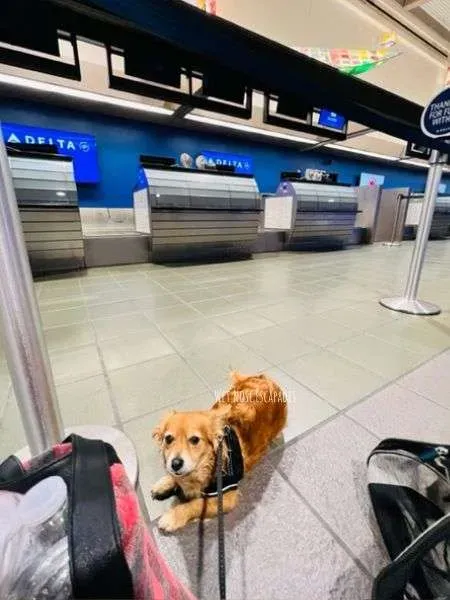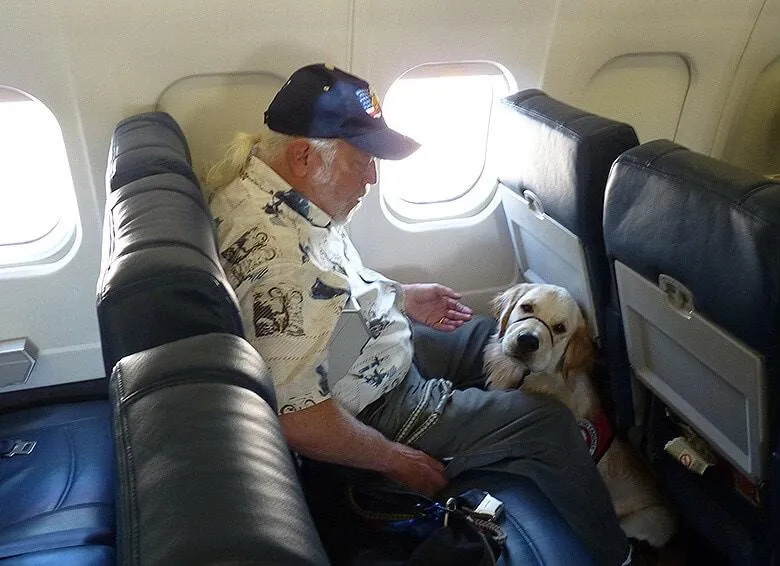Understanding Delta’s Pet Policies and Restrictions
Whether you’re looking to bring Fido along on your next vacation or need to travel with your emotional support animal, understanding an airline’s pet policies is crucial. As one of the largest carriers in the U.S., Delta Air Lines transports thousands of pets every year. However, certain rules and regulations must be followed to ensure the safety and comfort of all passengers. Below, I’ll break down Delta’s current pet policies and provide answers to common traveler questions.
What Types of Animals Are Allowed?
Delta allows pets to travel as checked baggage or in the aircraft cabin, depending on the animal. In the cargo hold, dogs, cats, and some small household birds are accepted for transport. When it comes to cabin pets, only dogs and cats qualifying as service or support animals are permitted.
Specifically, service animals like guide dogs that assist passengers with disabilities are unconditionally allowed in the cabin free of charge. On the other hand, emotional support animals require significant prep work, including a letter from your mental health professional. I’d recommend starting the approval process well in advance.

What Are the Size and Cage Requirements?
For checked pets, Delta has strict size limits to ensure animals fit safely and legally within carriers. Dogs, cats, and birds must be able to stand comfortably and make normal movements inside an IATA-compliant Travel Kennel or Ventilated Plastic Kennel. The specific dimensions are 17.5 inches by 11.5 inches by 7.5 inches for most breeds.
Larger kennels are accepted, but the animal must be able to turn freely without touching the sides. There are also weight restrictions based on flight route, so be sure to verify allowances on Delta’s pet shipping page. Proper identification including microchips or tags is also a must.
What Are the Health Certificate and Vaccination Requirements?
When traveling internationally with a pet, you’ll need a valid health certificate issued by a licensed veterinarian within 10 days of departure. The certificate must certify the animal is free from infectious diseases and list all vaccinations administered, including rabies shots. Domestic flights typically don’t require a certificate, but your pet should still be current on core vaccines like rabies, distemper, and parvovirus.

It’s a good idea to get a titer test verifying immunity if a vaccine’s expiration is approaching. Vaccination requirements vary by destination country too, so confirm specifics during the booking process. Official documentation ensures your pet meets import health standards upon arrival.
What Paperwork Is Necessary?
- Travel Certificate: for international travel
- Vaccination Records: valid rabies certification at minimum
- Veterinary Health Form: certifying good health from a licensed vet
- Service/Support Animal Letter: if accompanying passenger in cabin
You’ll also need ID tags on the pet’s collar with your contact info. Fill out any customs declarations truthfully and thoroughly. Each of these elements, along with the travel kennel, must be presented at check-in. Allow extra time and don’t hesitate to confirm documents meet airline rules to avoid costly delays or denied boarding.
What Are the Costs Involved?
Delta charges a non-refundable pet reservation fee of 5 each way for animals traveling in the cargo hold. There may be additional charges based on weight and flight routing too. Service animals fly free but require pre-booking by contacting Delta Cargo at least 48 hours ahead.

Other potential expenses include the kennel itself, vet exams/vaccinations, microchipping, and pet fees at your destination if staying in accommodations. My advice would be to budget $300-500 total per pet when planning international travel. For domestic travel, you may spend under $250 with simpler health certificate rules.
It’s also wise to take out travel health insurance in case of delays, lost paperwork, or other unforeseen incidents requiring additional care. A few hundred dollars upfront can provide major peace of mind while away from home with pets in tow.
What Are Some Tips for a Smooth Trip?
From my experience coordinating several pet vacations, having all documents in order well ahead of time is key to easing any stress. Take extra copies of critical records and consider scanning/emailing them to yourself too for accessibility during travel.

Be fully aware of check-in/cargo drop-off deadlines too—a missed cutoff means your pet may miss the flight. I always arrive at least 2 hours before departure as a precaution. Curb anxiety for your pet by using a calming medication if needed and packing favorite toys/blankets as comfort items.
Communicate any specific needs of your pet clearly to Delta representatives at check-in. Allow any required sedatives or vaccines enough time to take effect before the flight. And during your trip, be sure to check pet claim locations the moment you reach your destination.
By taking a methodical approach, following Delta’s policies to the letter, and planning for potential issues, you and your pet should have a hassle-free flying experience together. Safe travels! Let me know if any other questions come up.
Delta Airlines Pet Policy
| Pet Type | Fee | Cabin | Container |
|---|---|---|---|
| Cats | $125 each way | Aircraft cabin | Animal carrier under seat |
| Dogs | $125 each way | Aircraft cabin | Animal carrier under seat or in cargo area with owner check-in |
| Emotional Support/Service Animals | No charge | Aircraft cabin | Vest/harness/leash |
| Exotic Animals | Quoted on request | Cargo hold only | Varies by animal type |
| Aquatic Life | Not accepted | N/A | N/A |
FAQ
- How many pets can I have in my apartment? The maximum number of pets allowed is two. But you can have only one dog or one cat – not one of each.
- Are there any size limitations for pets? Pets must weigh less than 30 pounds fully grown. Unfortunately great danes and mastiffs would be too big for our property.
- Do I need to register my pet? Yeah, you basically need to fill out some paperwork with your pet’s details and pay a small registration fee. This is so we have records of all the animals living here.
- Is there a pet deposit? Although it kinda stinks, there is a $200 deposit required for each pet. But it’s refundable if your pet doesn’t damage the place or cause any problems when you move out.
- What types of pets are allowed? We allow most typical house pets like dogs, cats, hamsters, and fish. But no reptiles, farm animals, or exotic pets due to insurance restrictions.
- Are there any pet rules I need to follow? You must clean up after your pet outside and keep noise to a minimum. Pets aren’t permitted on the furniture too. It’s also important to ensure vaccinations are up to date.
- What happens if I get a pet without permission? I’d advise against getting an unapproved pet. You could end up paying fines or even lose your pet. It’s better to get things approved beforehand to avoid issues down the line.
- Is my emotional support animal allowed? At the same time, we do make exceptions for legitimate emotional support animals if you have paperwork from your doctor. Although I saw an “emotional support squirrel” once that was a hoot! Maybe I need an emotional support sloth to stay calm.
